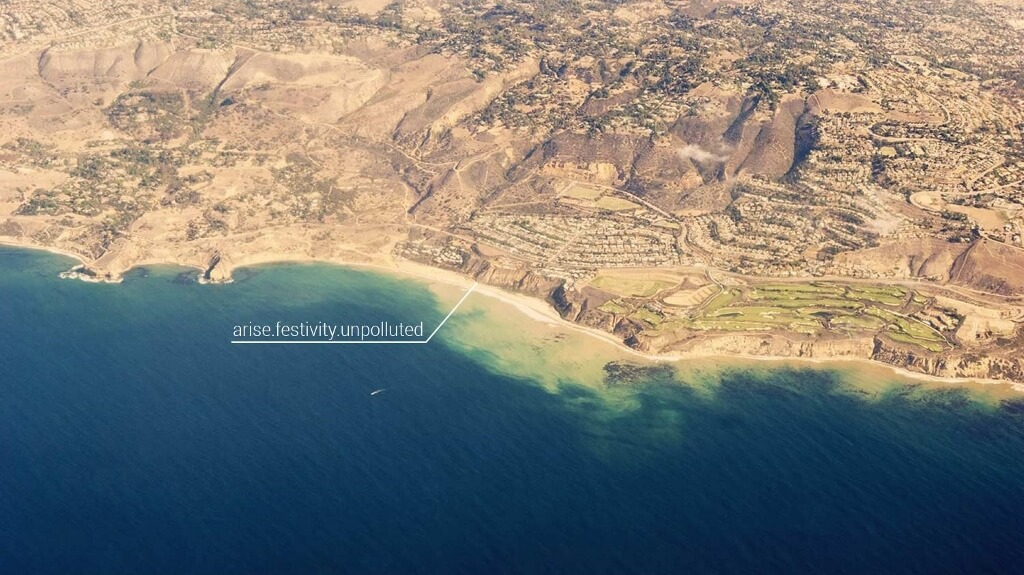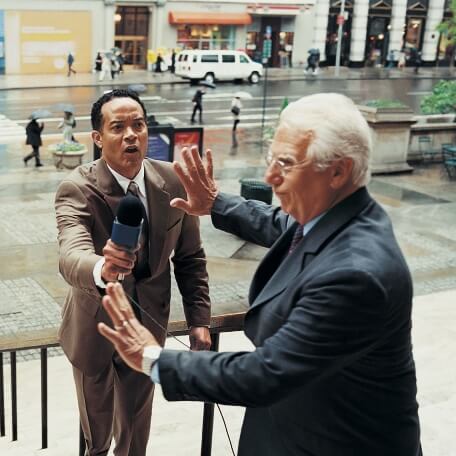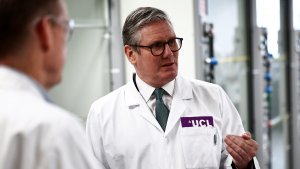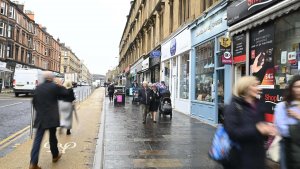Chris Sheldrick [pictured right] discovered a way of providing addresses to every corner of the world with simple three-word codes. Here he tells us why this is an idea 4 billion people desperately need.
How What3Words Is 'Addressing The World'
Chris Sheldrick [pictured right] discovered a way of providing addresses to every corner of the world with simple three-word codes. Here he tells us why this is an idea 4 billion people desperately need.
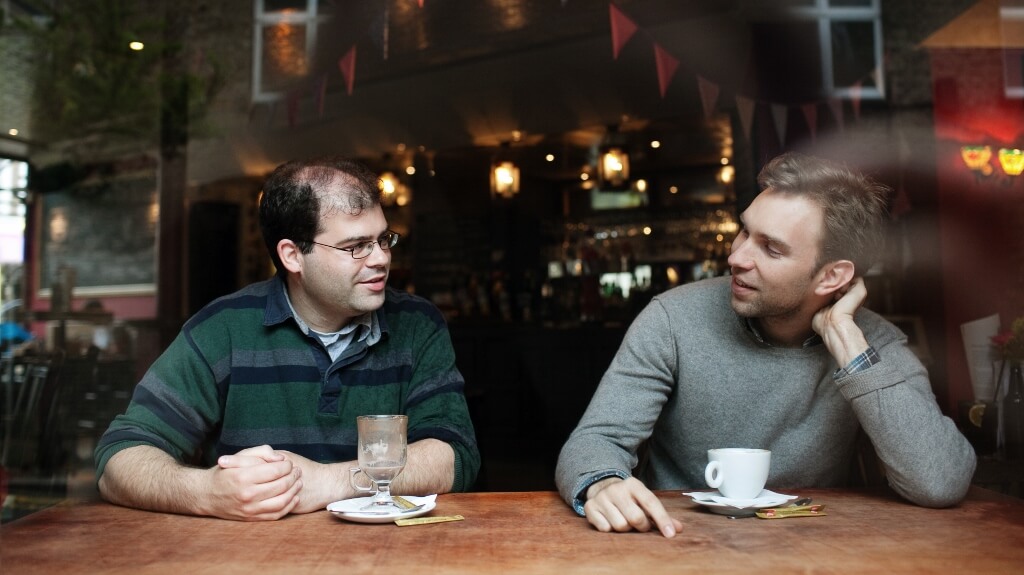
We have come up with a really easy way to identify any location worldwide. No matter how remote or specific, everywhere and everyone can be found. To do this, we’ve divided the world into 57 trillion 3m x 3m squares and have given each square a unique, fixed, three-word address like table.lamp.spoon.
With what3words, delivery companies can find individuals more easily, people can find their friends at a festival, and we can give addresses to the 4 billion individuals in the world that don’t have one.
Who is using the system?
The system is now being used in more than 170 countries by logistics firms, navigation apps, travel guides and NGOs, including offline navigation giant Navmii, the United Nations disaster recovery app UN-ASIGN and Norway’s National Mapping website Norgeskart.
We are being used to deliver packages in the favelas, medicine in the townships, coordinate staff and first aiders at large music events and address water points in Tanzania. Mongolia recently adopted three-word addresses as their national addressing system.
Where did you get the idea for your business and why did you think there would be demand?
Having spent 10 years organising live music events, I was constantly faced huge logistical frustrations due to poor addressing. I resorted to using latitude and longitude to be precise but quickly realised that this was a recipe for disaster.
Human beings simply aren’t designed to input complex codes of letters and numbers without errors. In every event, without fail, trucks carrying equipment and even musicians themselves simply didn't arrive where they were supposed to be.
A particular low point was a call from a keyboard player stating: “it appears we may have sound checked at the wrong wedding in Birmingham”.
I discussed the idea of a more usable and less error-prone version of the latitude and longitude coordinate system with a mathematician friend, who subsequently wrote an early version of the what3words algorithm on the back on an envelope.
And the cogs turned we realised that this idea could do so much more than just make sure a band turned up on time.
Is there a big opportunity and what do you hope to achieve in future?
Around 75% of the world - over 135 countries - suffer from inconsistent, complicated or no addressing. This means that people can’t receive mail, access government and financial services, secure property rights, arrange aid deliveries, track epidemics like Ebola and tackle natural disasters.
In the other 25%, typically painted as the developed world, address systems don’t offer universal coverage and are often inaccurate. Poor addressing means friends are not met, remote assets are difficult to manage, aid can’t get to the people who need it most, deliveries are missed and local businesses can’t be found.
At best, poor addressing is costly and annoying, at worst it hampers the growth and development around the world.
The geospatial industry is worth an estimated $150bn annually. Yet there is no precise global address or location reference system that can be used easily by everyone. Huge advances have been made in mapping and navigation technology, but the central part of the experience – identifying a specific location – has not evolved.
Plot the growth story to today. How many staff, what's the turnover and give us some idea of how your customer base has developed?
We have steadily added functionality to the service since we released our app and website in July 2013. The online API was released in November 2013 and the offline SDK in October 2014. Autosuggest error detection and offline navigation functionality was added in February 2015.
Next to come is intelligent handling of three-word input by voice – this is going to be huge as human to machine communications becomes more commonplace.
We have also steadily added languages. We are now available in 10 including English, Spanish, French, Swahili, Portuguese, Russian and Turkish. We are currently testing Mongolian, Greek and Arabic.
We have steadily added commercial partners who have integrated the API and to date the system has been integrated into hundreds of apps and services.
What have been the major bumps in the road and how have you overcome them?
In the early days, we underestimated the extent to which people recognise the problem of global addressing. Most people just assume it isn’t a problem, but when you ask them how often they got lost, packages go missing or how they would function if their country didn’t have an addressing system – they immediately understand.
We are now far clearer about how and where addressing doesn’t work around the world and we’re a lot more successful in conveying our idea as a result.
How have you marketed the business?
We have a very clear vision. We want to change the world and make it a less frustrating, more efficient and safer place.
We focused on getting our message to “Ambitious Innovators”, those who could see the opportunity is such a disruptive approach. We got an invitation to the World Economic Forum and even a visit to 10 Downing Street (chief.score.locked).
Last year we won the Cannes Lions Grand Prix for Innovation, a recognition award from the United Nations Universal Postal Union, a Laureate from The Tech Awards and Best British Mobile Startup at MWC. These milestones have helped us raise awareness and definitely driven inbound leads.
Key to achieving dramatic scale in a short timeframe has been our ability to develop strategic commercial partnerships which has brought our technology to new users all around the world.
Audi recently discovered what3words and found their iconic tag line vorsprung.durch.technik was a 3 word address in the jungle just outside of Sao Paulo. They love a road trip, so they drove their latest Q7 there and documented the whole process.
What the hardest thing about running your own business and what makes it fulfilling/fun?
We’ve built out a global strategy from scratch about how we feel it’s best to get people across the world using a new address system. There is no precedent to follow and you have to get your best heads around the table and build a route to global adoption. That’s both hard, fulfilling and fun in equal measures.
What sets your business apart from the rest and how have you nurtured that point of difference?
There are a number of numeric and alphanumeric location systems (e.g. Mapcode, Plus codes and GPS coordinates).
Three words are significantly more memorable than the equivalent alphanumeric characters or lat/long coordinates required to define the same location, and much quicker and easier to say. One’s ability to remember anything over 8 alphanumeric characters is close to zero. Your ability to remember 3 words is near perfect.
How you developed your staff - how do you recruit, how do you inspire your people and what incentives do you give them to stay loyal?
The team at what3words is a mix of experienced entrepreneurs, people who have worked at the highest levels in large global organisations, academics, and bright graduates. We hire people who "get things", can find connections quickly and have a breadth of applicable skills.
We want people who are confident in their own abilities, without ever being arrogant, and respectful of other people's abilities, without ever taking them for granted. At the same time everyone is forward looking, comfortable when trying new things, and always determined to find ways to do things better.
How do you rate government support for growing businesses and why?
The government’s SEIS and EIS schemes are fantastic to help early stage businesses get investment from private individuals. We are also delighted to be ambassadors for the UK Government’s “Innovation is GREAT” campaign which offers us public government endorsement on the global stage.
What are your top three tips for people starting a business today?
1. Build a product or a service that can do good and global businesses also want to use. The more your business grows, the more your impact grows.
2. Be flexible, not prescriptive; create something that projects and organisations can use in different ways that suit their aims and impacts outcomes.
3. Plan for sustainability; ensure your impact is protected if your business changes, if you sell it or if it is no longer viable.
Thanks for signing up to Minutehack alerts.
Brilliant editorials heading your way soon.
Okay, Thanks!


